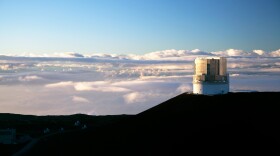
Joe Palca
Joe Palca is a science correspondent for NPR. Since joining NPR in 1992, Palca has covered a range of science topics — everything from biomedical research to astronomy. He is currently focused on the eponymous series, "Joe's Big Idea." Stories in the series explore the minds and motivations of scientists and inventors. Palca is also the founder of NPR Scicommers – A science communication collective.
Palca began his journalism career in television in 1982, working as a health producer for the CBS affiliate in Washington, DC. In 1986, he left television for a seven-year stint as a print journalist, first as the Washington news editor for Nature, and then as a senior correspondent for Science Magazine.
In October 2009, Palca took a six-month leave from NPR to become science writer in residence at The Huntington Library, Art Collections, and Botanical Gardens.
Palca has won numerous awards, including the National Academies Communications Award, the Science-in-Society Award of the National Association of Science Writers, the American Chemical Society's James T. Grady-James H. Stack Award for Interpreting Chemistry for the Public, the American Association for the Advancement of Science Journalism Prize, and the Victor Cohn Prize for Excellence in Medical Writing. In 2019, Palca was elected to the American Academy of Arts and Sciences for outstanding achievement in journalism.
With Flora Lichtman, Palca is the co-author of Annoying: The Science of What Bugs Us (Wiley, 2011).
He comes to journalism from a science background, having received a Ph.D. in psychology from the University of California at Santa Cruz, where he worked on human sleep physiology.
-
Carmen Bachmann, a professor in Leipzig, is building an online network to help political refugees who are scientists or social scientists connect with professional peers in Germany — their new home.
-
The Trump administration's travel ban is preventing some researchers from returning to the U.S. Scientists fear this could negatively impact collaborations and international scientific meetings.
-
Anthropologists in Germany say they may not need old bones to recover ancient DNA. They just analyze dust from the floor of caves where Neanderthals and other now-extinct human relatives once resided.
-
Ninety young Syrian refugees are teaming up with neuroscientists in Leipzig to figure out the quickest and best way to teach German as a second language. Vocabulary first, or grammar early on, too?
-
Scientists will search the sky Thursday for an undiscovered planet in the outer solar system — they're pretty sure it's out there, and computer models tell them where to look.
-
Graphene comes in sheets barely an atom thick and is extremely good at conducting electricity. By adding the unusual form of carbon to Silly Putty, scientists created flexible sensors.
-
The James Webb Space Telescope is undergoing its final series of tests in NASA workshops. It's designed to take even grander images than the Hubble telescope. But deploying it will be a major feat.
-
The object known for now as 2014 UZ224 is only about 330 miles across and takes 1,100 years to orbit the sun. But one of the most interesting things about it is the way researchers found it.
-
Molecular biologist Monica Dus is studying fruit flies to understand how a high sugar diet affects the brain and leads to overeating and obesity. And she just won a big grant to dig deeper.
-
In 1975, the Personal Rapid Transit in Morgantown, W.Va., was expected to usher in a new age of public transit nationally. It didn't. Still, the aging system is getting a $100-million upgrade.









